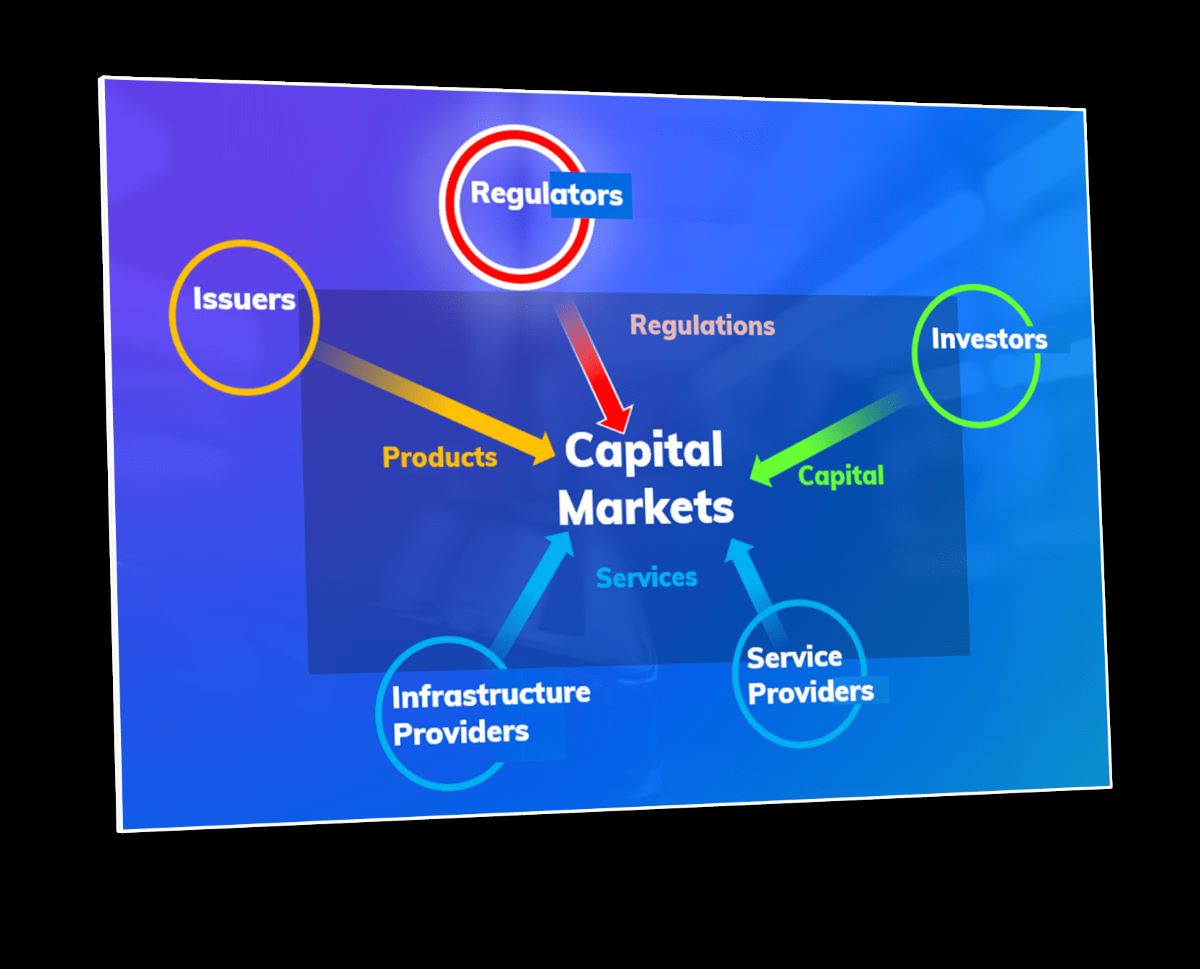

Finance
How To Get Funding For An LLC
Published: December 21, 2023
Learn how to secure funding for your LLC with expert tips and strategies from the finance professionals. Maximize your chances of success!
(Many of the links in this article redirect to a specific reviewed product. Your purchase of these products through affiliate links helps to generate commission for LiveWell, at no extra cost. Learn more)
Table of Contents
Introduction
Starting and running a successful LLC (Limited Liability Company) requires careful financial planning and management. One of the key aspects of ensuring the smooth operation and growth of an LLC is securing adequate funding. Whether you are launching a new venture or looking to expand an existing one, having access to the right funding sources can make all the difference.
In this article, we will explore various funding options for an LLC and provide insights into how you can obtain the necessary capital to fuel your business ambitions. From personal savings and loans to angel investors and venture capitalists, we will discuss a range of funding sources that cater to different financial needs and circumstances.
Determining the right funding approach for your LLC will depend on factors such as the stage of your business, the amount of capital required, your creditworthiness, and your specific industry. Whether you are looking for a small injection of funds or a substantial amount to fuel rapid expansion, understanding your funding options is crucial.
It’s important to note that while securing funding is essential, it’s equally important to have a solid business plan and financial projections in place. Lenders and investors will want to see that you have a clear vision for your LLC and a strategy to generate revenue and ensure profitability. Having a well-developed business plan can increase your chances of securing funding and instill confidence in potential investors.
Throughout this article, we will discuss various funding options and their pros and cons, helping you make an informed decision based on your unique circumstances and goals. Keep in mind that it’s always advisable to consult with a financial advisor or an attorney specializing in business finance to understand the legal and financial implications of each funding option.
Now, let’s dive into the world of funding possibilities for your LLC and explore the avenues that can help bring your business to new heights.
Determining Funding Needs
Before embarking on your quest for funding, it’s crucial to determine how much capital your LLC needs. Assessing your funding requirements will help you narrow down the most suitable funding options and approach potential lenders or investors with a clear financial goal in mind.
Start by creating a detailed budget for your LLC, taking into account expenses such as operating costs, marketing and advertising expenses, salaries, inventory, equipment, and any other costs specific to your industry. Consider both the short-term and long-term financial needs of your business.
Additionally, assess your revenue generation potential by forecasting sales and estimating cash flow projections. This will help you determine the amount of funding required to cover any cash flow gaps and sustain your business during periods of slow sales or unexpected expenses.
It’s essential to be realistic with your projections and budgeting. Overestimating your funding needs may make it harder to secure financing, while underestimating could leave you short of the funds necessary to execute your plans adequately.
As part of determining your funding needs, consider the timeframe in which you require the funds. Are you seeking short-term financing for immediate needs, or do you need a long-term investment to fuel growth over several years? This will influence the type of funding that best suits your situation.
Furthermore, assess your own financial resources and contributions. Determine how much of your own personal savings you are willing and able to invest in the LLC. Lenders and investors will often want to see that you have a financial stake in your business and are committed to its success.
By carefully analyzing your LLC’s financial requirements and resources, you will be better equipped to approach funding options that align with your needs and maximize your chances of securing the necessary capital.
Personal Savings and Contributions
One of the most accessible and commonly used funding sources for an LLC is personal savings and contributions. This involves using your own money or assets to finance your business venture. While it may require substantial financial commitment, it offers the advantage of maintaining full ownership and control over your LLC.
Using personal savings to fund your LLC demonstrates a strong belief in your business idea and your commitment to its success. It also showcases your financial responsibility and dedication to building a sustainable company. Many lenders and investors view personal investment as a positive factor when considering funding opportunities.
Additionally, consider encouraging family and friends to contribute financially to your LLC. This can be done through loans or direct investment in exchange for equity. Family and friends are often more willing to support your business aspirations and may provide funding on more favorable terms than traditional lenders.
When using personal savings and contributions, it’s crucial to keep meticulous records and separate your personal finances from your LLC’s finances. This separation ensures transparency and simplifies accounting and tax requirements.
It’s important to note that relying solely on personal funds may not be feasible for all LLCs, especially those with significant capital requirements. In such cases, personal savings can be used as a starting point to secure additional funding from other sources, such as loans or investors.
Before tapping into your personal savings or seeking contributions from family and friends, it’s wise to consult with a financial advisor or attorney experienced in business finance. They can provide guidance on the legal and tax implications of personal funding and help you assess the potential risks and rewards.
Ultimately, personal savings and contributions enable you to have the initial capital needed to get your LLC off the ground and demonstrate your commitment as a business owner. It’s a reliable and flexible funding option, allowing you to retain control over your company while jumpstarting its growth.
Friends and Family Loans or Investments
When seeking funding for your LLC, don’t overlook the potential support of your friends and family. Loans or investments from loved ones can be an effective way to secure financing while maintaining a personal and mutually beneficial relationship.
Friends and family loans typically involve borrowing money from individuals close to you, with the agreement to repay the loan over a specified period of time, often with interest. This type of funding allows you to access capital without the stringent requirements and high interest rates associated with traditional lenders.
When approaching friends and family for loans, it’s essential to be transparent and treat the transaction professionally. Clearly outline the terms of the loan, including the interest rate, repayment schedule, and any collateral or guarantees required. It’s important to approach the arrangement with a sense of responsibility and ensure that both parties are well-informed and comfortable with the loan terms.
Another option is to offer your friends and family the opportunity to invest directly in your LLC in exchange for equity. This can be an attractive proposition for individuals who have faith in your business and are willing to take on a more active role as investors. In this case, it’s crucial to define the ownership structure and clearly outline the rights and responsibilities of each investor.
While borrowing from friends and family can have numerous advantages, it’s important to approach these relationships with caution. Mixing personal and financial matters can sometimes lead to strained relationships if expectations are not met. It’s vital to maintain open communication, establish clear boundaries, and honor your commitments to ensure the continued harmony of your personal and business connections.
Before entering into any financial agreement with friends or family, it’s advisable to consult with a legal professional to ensure compliance with any regulations or tax implications. This will help protect both parties and prevent potential legal issues in the future.
As with any funding source, it’s important to exercise responsible financial management and ensure that you have a solid business plan in place. Demonstrating a clear path to profitability and outlining the potential return on investment can instill confidence in your friends and family and increase the likelihood of securing their support.
Friends and family loans or investments can be a valuable source of funding for your LLC, allowing you to access capital from individuals who believe in your business. Just remember to approach these opportunities with professionalism, transparency, and a commitment to maintaining strong personal relationships.
Small Business Administration (SBA) Loans
The U.S. Small Business Administration (SBA) offers a variety of loan programs designed to support and empower small businesses, including LLCs. SBA loans are a popular option for entrepreneurs seeking affordable financing with favorable terms.
One of the most sought-after SBA loan programs is the 7(a) loan program. This program provides funding for a wide range of business purposes, including working capital, equipment purchases, real estate, and refinancing existing debt. SBA 7(a) loans have longer repayment terms and lower interest rates compared to many traditional loans, making them highly attractive.
Another popular SBA loan option is the SBA Microloan program. These loans, typically ranging from $500 to $50,000, are particularly suited for startups and smaller LLCs. Microloans are administered through nonprofit organizations and may come with additional technical assistance or mentorship opportunities.
To secure an SBA loan, you must meet certain eligibility criteria and go through the application process, which includes providing detailed financial information, a business plan, and collateral. While SBA loans are not granted directly by the SBA, the agency guarantees a portion of the loan, reducing the risk for lenders and increasing the likelihood of approval for qualified applicants.
While SBA loans offer many advantages, including competitive interest rates and flexible terms, they do require thorough preparation and documentation. It’s important to carefully review the requirements and work with a qualified lender experienced in SBA lending to navigate the application process successfully.
Keep in mind that the SBA does not lend money directly to businesses. Rather, it partners with participating lenders, such as banks and credit unions, to provide financial assistance. Therefore, it’s essential to research and identify lenders in your area that offer SBA loans and understand their specific requirements and criteria
Overall, SBA loans can be an excellent option for LLCs seeking affordable and accessible funding. With their favorable terms and support from the Small Business Administration, these loans can provide the capital needed to fuel growth and expansion while minimizing financial strain on your LLC.
Bank Loans and Lines of Credit
When it comes to traditional financing options, bank loans and lines of credit are often the first options that come to mind for funding an LLC. Banks provide a range of financing solutions tailored to the specific needs of businesses, including lines of credit and term loans.
Lines of credit are a flexible form of financing that provides businesses with access to a predetermined credit limit. This allows you to borrow funds as needed, making it an ideal solution for managing cash flow fluctuations or covering unexpected expenses. You only pay interest on the amount borrowed, giving you the flexibility to borrow and repay as your business requires.
Term loans, on the other hand, provide a lump sum of money that is repaid over a specific period with fixed monthly payments. These loans are commonly used for larger investments, such as purchasing equipment or expanding operations. The terms of the loan, including repayment period and interest rate, will be determined based on your creditworthiness and the financial health of your LLC.
While bank loans and lines of credit can offer attractive interest rates and flexible financing options, they often come with more stringent credit requirements than alternative funding sources. Banks typically require a strong credit history, a well-established LLC, and collateral to secure the loan.
To increase your chances of securing a bank loan or line of credit, ensure that your LLC has a strong credit profile and maintain a positive relationship with your bank. Provide the necessary financial documents, including business and personal tax returns, financial statements, and a well-developed business plan that showcases the viability of your venture.
It’s important to shop around and compare offerings from different banks to find the best terms and rates for your LLC’s financial needs. Additionally, consider working with a bank that has expertise in small business lending, as they may have more tailored solutions and a better understanding of your unique funding requirements.
Bank loans and lines of credit are valuable financing options for LLCs, providing the necessary capital to support growth and ongoing operations. However, it’s essential to carefully assess your financial standing and creditworthiness before pursuing these funding options and to have a clear repayment plan in place to avoid any potential financial strain on your LLC.
Crowdfunding
Crowdfunding has revolutionized the way businesses raise funds, offering an alternative approach to traditional financing models. Through online platforms, entrepreneurs can tap into a vast network of individuals who are willing to contribute varying amounts of money to support their business ideas and ventures.
There are several types of crowdfunding, including donation-based crowdfunding, rewards-based crowdfunding, and equity crowdfunding.
Donation-based crowdfunding involves individuals contributing money to support a cause or project without expecting anything in return. This type of crowdfunding is often used for charitable ventures or community initiatives.
Rewards-based crowdfunding allows businesses to offer incentives, such as products or services, in exchange for financial contributions. This model is popular among startups and creative projects looking to engage their target audience and generate pre-sales.
Equity crowdfunding allows businesses to sell shares or ownership in their company to a broad range of investors. This type of crowdfunding enables smaller investors to participate in the growth and success of the business.
Crowdfunding platforms, such as Kickstarter, Indiegogo, and GoFundMe, provide entrepreneurs with a platform to showcase their business ideas and attract potential backers. A compelling pitch, engaging campaign, and effective marketing strategy are crucial to stand out among the numerous projects vying for funding.
Crowdfunding offers several advantages for LLCs. It allows businesses to validate their ideas and gauge market interest before investing significant resources. It also provides an opportunity to build a community of loyal supporters and brand advocates who are passionate about your product or service.
However, it’s important to note that crowdfunding is not a guaranteed source of funding, and success requires careful planning and execution. Entrepreneurs must invest time and effort in creating an attractive campaign, maintaining strong communication with backers, and delivering on promised rewards or equity.
Additionally, it’s essential to thoroughly research and understand the specific terms and fees associated with each crowdfunding platform, as they can vary significantly. Consider factors such as platform fees, payment processing fees, and any contractual obligations imposed by the platform.
Choosing the right crowdfunding model for your LLC depends on your funding goals, target audience, and industry. Assess your funding needs and consider crowdfunding as a dynamic and innovative option to raise capital, gain exposure, and engage with your target market.
Grants and Competitions
If you are looking for non-dilutive funding, grants and competitions can be an excellent avenue to explore for your LLC. These opportunities provide funding that does not require repayment and can often come with additional benefits, such as mentorship and networking opportunities.
Grants are typically offered by government agencies, nonprofit organizations, and private foundations. They are awarded based on specific criteria and may be targeted towards specific industries or areas of innovation. To qualify for grants, your LLC will need to meet the eligibility requirements and demonstrate how your business aligns with the grant’s objectives.
One of the advantages of grants is that they can provide a significant financial boost to your LLC without diluting your ownership. However, competition for grants can be fierce, and the application process can be rigorous. It requires careful research, meticulous preparation, and a compelling case for how your LLC will use the grant funding to achieve its goals.
In addition to grants, participating in business competitions can be a valuable way to secure funding for your LLC. These competitions often require entrepreneurs to pitch their business ideas or present their existing ventures to a panel of judges, who then award prizes to the winners. The prizes can range from cash injections to mentorship opportunities or access to further funding.
Business competitions not only offer the potential for financial support but also provide valuable feedback, exposure to investors and industry experts, and networking opportunities. However, it’s important to carefully evaluate the terms and conditions of each competition, as some may require equity stakes in your LLC or impose specific obligations on the winners.
When seeking grants or participating in competitions, it’s crucial to research available opportunities and ensure alignment with your business’s mission and objectives. Develop a clear and compelling pitch, highlighting the unique aspects and potential impact of your LLC. Thoroughly understand the requirements and guidelines of each opportunity and tailor your applications or presentations accordingly.
Utilizing grants and competitions as a funding strategy requires persistence, creativity, and the ability to effectively communicate the value proposition of your LLC. Explore funding databases, industry-specific programs, and local resources to uncover potential grants and competitions that can provide the financial boost your LLC needs while gaining recognition and support from relevant networks.
Angel Investors
Angel investors are individuals or groups of high-net-worth individuals who provide financing to start-ups and early-stage companies, including LLCs. These individuals often have extensive business experience and are willing to invest their own capital in exchange for equity or other financial arrangements.
Angel investors typically seek opportunities in industries with high growth potential and are interested in supporting innovative and promising ventures. Beyond providing funding, angel investors often offer mentorship, industry connections, and valuable expertise to help your LLC succeed.
One of the key benefits of working with angel investors is their ability to provide not only financial resources but also strategic guidance and access to valuable networks. Their expertise and industry knowledge can help shape your business strategy, refine your product or service, and open doors to potential customers, partners, or future investors.
When approaching angel investors, it’s crucial to have a well-prepared pitch deck and a solid business plan that showcases the potential growth and profitability of your LLC. Demonstrate your understanding of the market, the competitive landscape, and how your business differentiates itself.
While angel investors can accelerate the growth of your LLC, it’s important to note that they typically seek a high return on their investment. Be prepared to negotiate the terms of the investment, including the equity stake and any rights or control they may have in your company.
Additionally, conducting thorough due diligence on potential angel investors is essential. Look for investors who have experience or interest in your industry and who align with your company’s values and long-term vision. Seek recommendations from other entrepreneurs who have worked with angel investors to ensure you find the right match for your LLC.
Angel investors are often most active in the early stages of a company’s growth, providing capital to support product development, market expansion, and talent acquisition. As your LLC matures, you may seek additional funding from other sources, such as venture capital firms, to fund larger-scale growth initiatives.
Angel investors can be game-changers for your LLC, providing not only the necessary capital but also invaluable guidance and connections. However, it’s important to carefully consider the terms of the investment and ensure a strong alignment of interests between your business and the angel investor to set the stage for a successful and mutually beneficial partnership.
Venture Capitalists
Venture capitalists (VCs) are professional investment firms that provide funding to high-potential, high-growth companies, including LLCs. They invest large sums of money in exchange for equity ownership and actively participate in the strategic decision-making of the invested companies.
Unlike angel investors who invest their personal capital, venture capitalists manage funds from various sources, including institutional investors, corporations, and wealthy individuals. These funds are pooled together to create a substantial investment pool dedicated to supporting early-stage and growth-focused enterprises.
Venture capitalists often specialize in specific industries or sectors, bringing deep industry knowledge and expertise to the table. In addition to funding, they offer valuable mentorship, connections, and access to their extensive networks, assisting your LLC in scaling and achieving its growth objectives.
Pitching to venture capitalists requires a solid business plan, a compelling story that showcases your LLC’s unique value proposition, and robust financial projections that demonstrate the potential return on their investment. Venture capitalists are known for conducting thorough due diligence, assessing market opportunities, competitive analysis, and the strength of your team’s capabilities.
While venture capital financing can provide a significant injection of capital, it’s essential to note that it often involves relinquishing a substantial portion of equity and control in your LLC. Be prepared for robust negotiations and carefully consider the implications of such partnerships on your long-term vision and goals.
Working with venture capitalists can offer more than just financial resources. They bring a wealth of experience and a valuable network that can accelerate your LLC’s growth trajectory. However, it’s important to find a venture capital firm that aligns with your industry focus, growth ambitions, and management style.
Seeking funding from venture capitalists is often most relevant when your LLC has already demonstrated some market traction, as they are typically looking for companies with strong growth potential. Having a clear plan on how the investment will be utilized and how it aligns with your broader business strategy is essential for attracting venture capital interest.
Collaborating with venture capitalists can take your LLC to the next level, providing the necessary capital infusion and strategic guidance to scale rapidly. However, it’s important to carefully evaluate the terms of the investment, align interests, and ensure that the partnership with the venture capital firm supports your long-term vision for your LLC.
Conclusion
Finding the right funding for your LLC is a crucial step in ensuring its success and growth. The funding options available to LLCs are diverse, catering to different financial needs and circumstances.
Personal savings and contributions offer a reliable and flexible source of funding, allowing you to invest your own capital and maintain control over your business. Loans from friends and family can provide additional financial support with the advantage of having a more personal and understanding relationship.
Government programs like Small Business Administration (SBA) loans offer attractive terms and lower interest rates, supporting the growth of LLCs by providing access to affordable financing.
Bank loans and lines of credit are traditional financing options that provide a lump sum or a credit limit to support ongoing operations and investment in your LLC. Crowdfunding platforms provide an alternative way to raise funds by engaging a broad network of individuals who believe in your business idea.
Grants and competitions offer non-dilutive funding and additional benefits, such as mentorship and networking opportunities. Angel investors and venture capitalists provide funding, expertise, and connections to scale your LLC to new heights.
When seeking funding for your LLC, it’s important to carefully assess your financial needs, research available options, and evaluate their suitability for your business. Develop a strong business plan, articulate your value proposition, and be prepared to pitch to potential investors or lenders.
Remember, securing funding is just the first step. Proper financial management and sound business strategies are crucial to effectively utilize the funds and drive your LLC’s success.
While each funding option comes with its own advantages and considerations, it’s important to evaluate them based on your specific needs, industry, and growth aspirations. Consider consulting with professionals in finance or business to guide you through the decision-making process.
By understanding your financing options and crafting a well-informed funding strategy, you can position your LLC for growth, innovation, and long-term success in the competitive business landscape.














